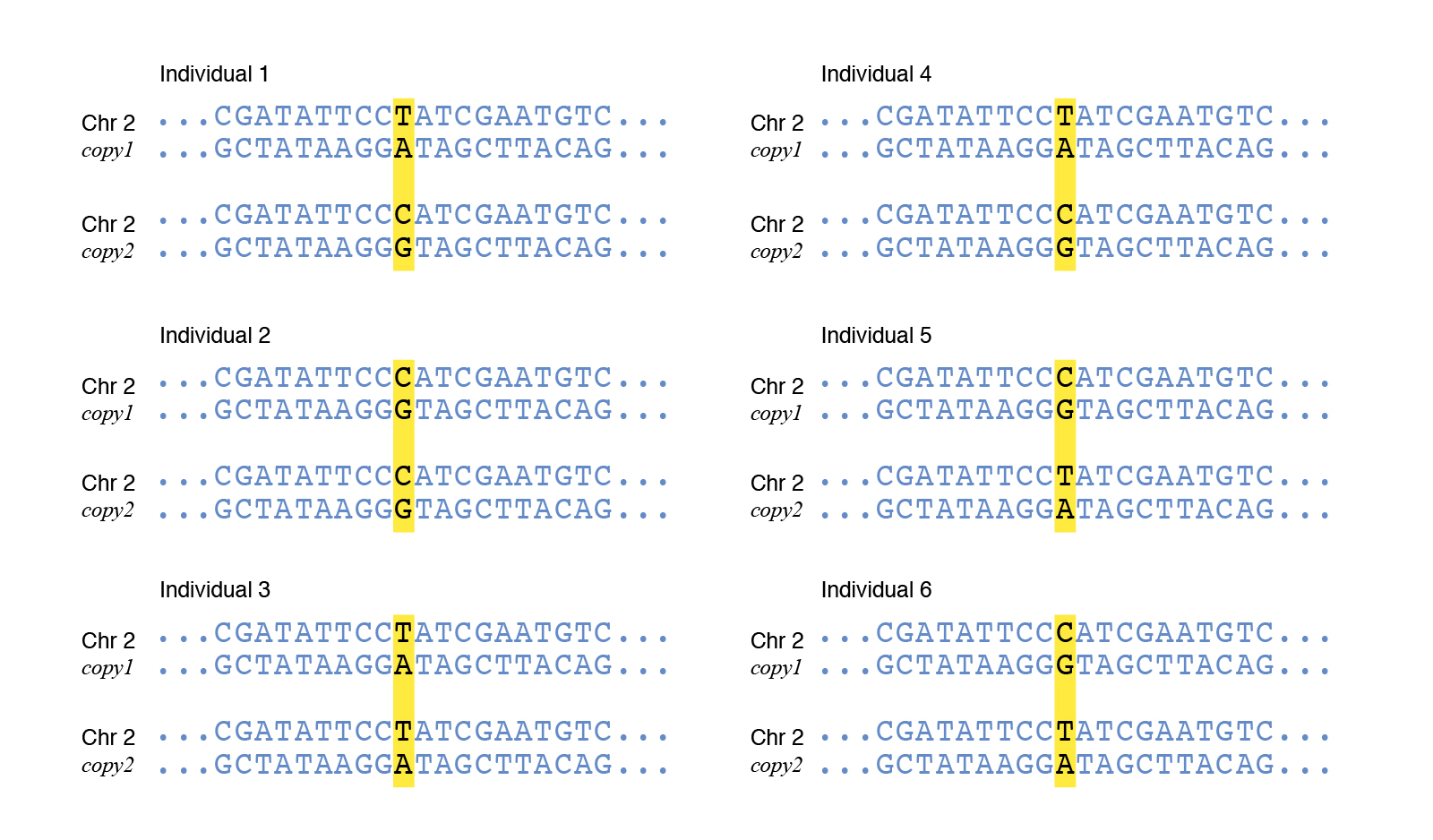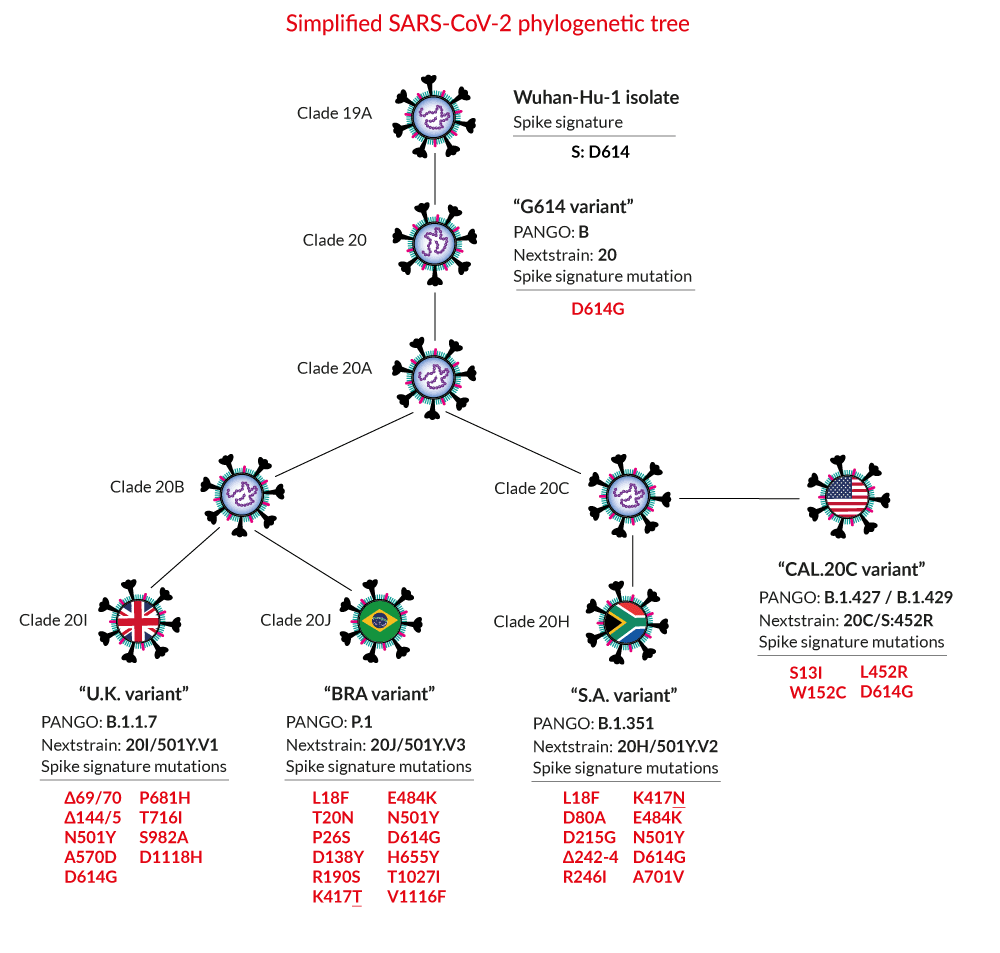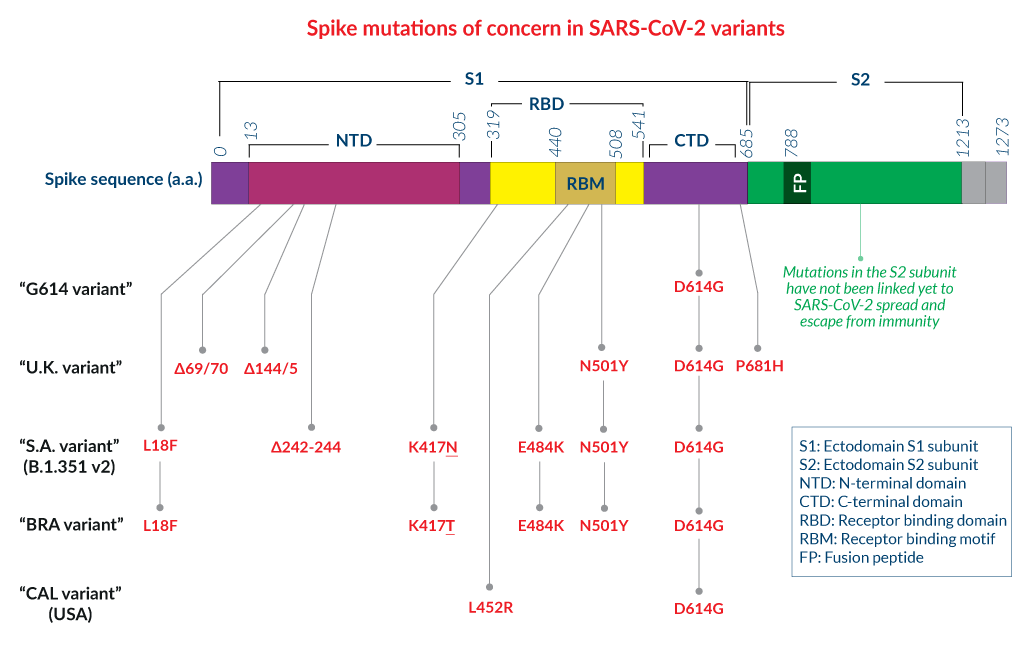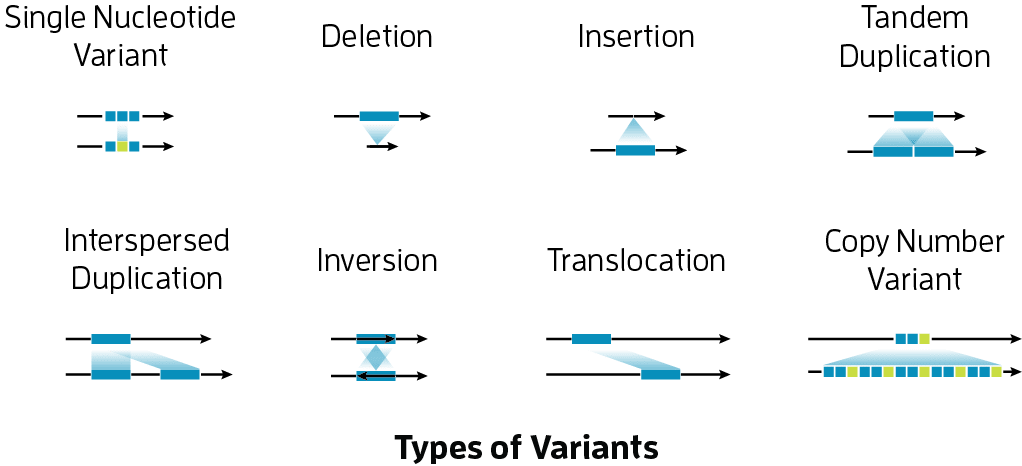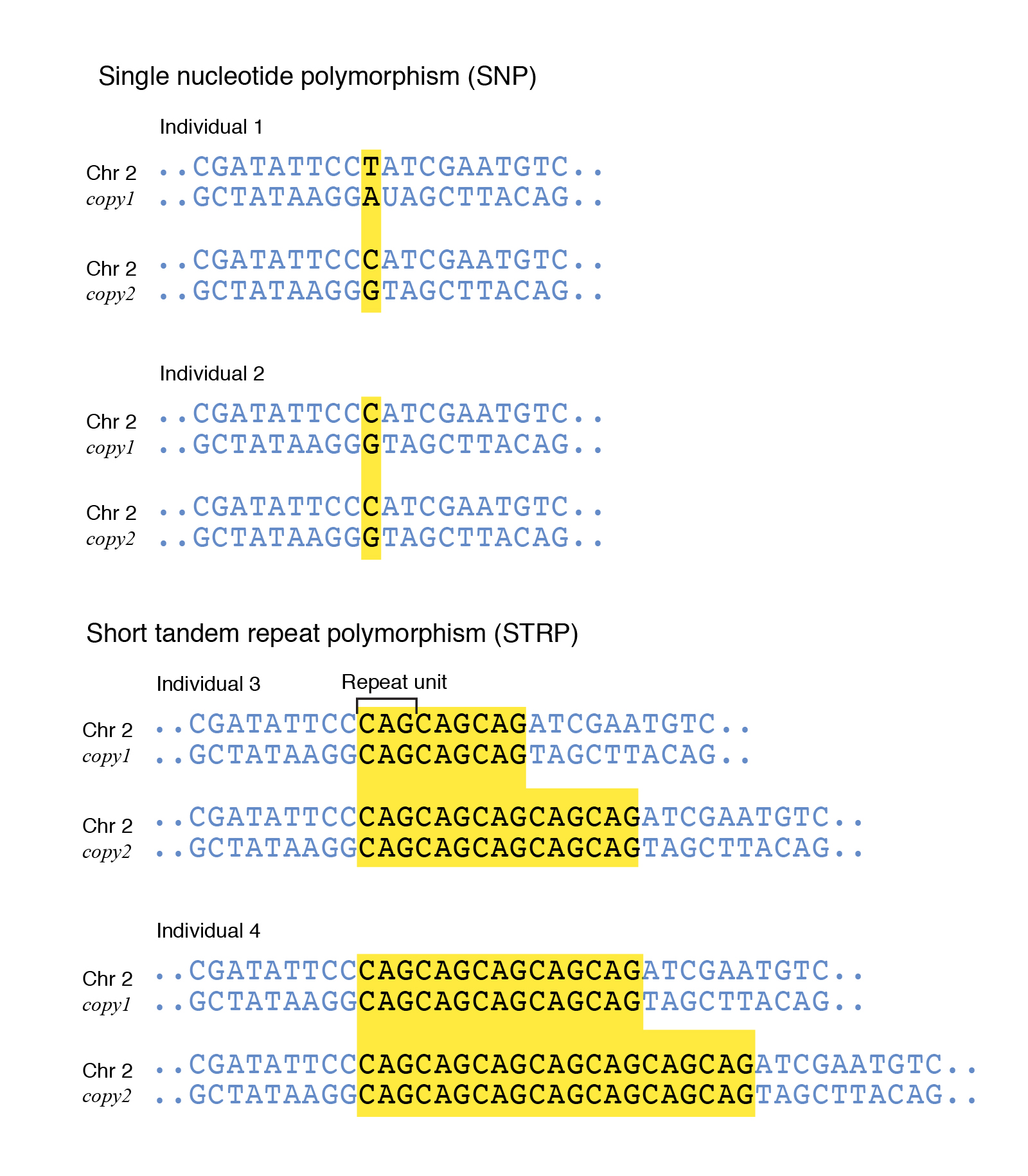Thus we use the term polymorphism to refer to variants of DNA sequences and other phenotypes that co-exist in a population at relatively high. Mutations give rise to al l variation but their survival in the genome is influenced by many factors including effects on reproductive fitness human.
Polymorphic coding and noncoding variants were transmitted in each familys relatives with a frequency ranging from 42 to 100 with similar rate for each SNP in mutated and nonmutated families with the only exception of BRCA1 K1183R significantly more frequent in mutated families P 0004.
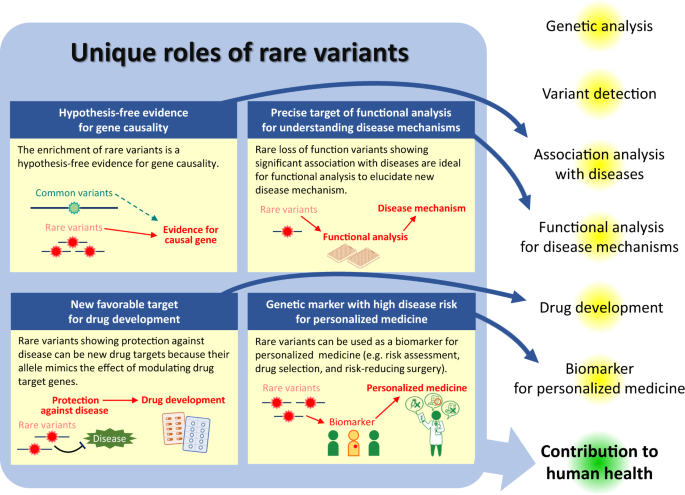
Variant mutation polymorphism. A genetic polymorphism is a variant of the DNA sequence or of an entire chromosome thought not to have pathogenic consequences. Mutation changes this to a rare and abnormal variant. Mutation is an alteration of the nucleotide sequence of a gene.
To qualify as a polymorphism some kind of balance must exist between morphs underpinned by inheritance. Naturally occurring but rare sequence variants that are clearly different from a normal wild-type sequence are also called mutationsOn the other hand many naturally occurring variants exist for traits for which no clearly normal type can be defined. Of an expected 177 unknown mutations we detected approximately 70 mostly protein truncating mutations that would have been detectable by protein truncation testing if RNA starting material had been available.
The criterion is that the frequency of the least common morph is too high simply to be the result of new. Rare variations are not classified as polymorphisms and mutations by themselves do not constitute polymorphisms. But these terms by extension quickly came to mean the resulting event or condition itself.
Discussions regarding the uniform and unequivocal description of sequence variants in DNA and protein sequences mutations polymorphisms were initiated by two papers published in 1993 Beaudet AL Tsui LC and Beutler E. A mutation in the methylenetetrahydrofolate reductase gene is not associated with increased risk for coronary artery disease or myocardial infarction. In principle a point DNA variant can be labeled as a mutation or SNP.
In contrast a mutation is a change in the DNA or a chromosomal. From a strictly grammatical and etymological point of view a mutation is an event of mutating and a polymorphism is a condition or quality of being polymorphic. Polymorphisms and Mutations Alan F Wright MRC Human Genetics Unit Edinburgh UK Theamountofsequencevariationindifferent regions of the human genome varies by an order of magnitude.
Herein we present 35 new mutations and 34 new intragenic polymorphisms or rare variants. In this case no single allele is regarded as the standard sequence. The arbitrary cut-off point between a mutation and a polymorphism is 1 per cent.
Instead there are two or more equally acceptable alternatives. That is to be classed. A mutation refers to a DNA variant in a particular individual whereas polymorphism refers to DNA variants within a populationThe main difference between mutation and polymorphism is the frequency of occurrence of each type of variants.
If a mutation occurs in a population with a frequency of more than 1 the mutation is called a polymorphism. In contrast a polymorphism is a DNA sequence variation that is common in the population. Mutations have now been defined for every exon of the ATM gene.
Many of the DNA changes we detected were intragenic polymorphisms. J Am Coll Cardiol 1997. In some sense both mutation and allele are genetic variants.
Conversely this SNP and BRCA2 N372H were more frequently present in breast cancer relatives belonging to families in which pathological BRCA mutations. As for term polymorphism - it describes an existense of two or more alleles of one gene two or more phenes of one feature two or. Mutation and polymorphism are two types of DNA variants.
41 Zeilen Mutation and Genetic Variation The source of all genetic variation lies in.

Unique Roles Of Rare Variants In The Genetics Of Complex Diseases In Humans Journal Of Human Genetics

The Circulating Sars Cov 2 Spike Variant N439k Maintains Fitness While Evading Antibody Mediated Immunity Biorxiv

Single Nucleotide Polymorphisms Snps Are Genetic Mutations That Alter Download Scientific Diagram

Emergence Of Y453f And D69 70hv Mutations In A Lymphoma Patient With Long Term Covid 19 Ncov 2019 Genomic Epidemiology Virological

Precise Detection Of De Novo Single Nucleotide Variants In Human Genomes Pnas

Predicting Disease Causing Variant Combinations Pnas

Somatic Variants New Kids On The Block In Human Immunogenetics Trends In Genetics
Difference Between Mutation And Polymorphism Definition Causes Types Features

Single Nucleotide Polymorphism Snp Youtube

Overview Of Structural Variation

The Circulating Sars Cov 2 Spike Variant N439k Maintains Fitness While Evading Antibody Mediated Immunity Biorxiv

A Comprehensive Map Of Single Base Polymorphisms In The Hypervariable Lpa Kringle Iv Type 2 Copy Number Variation Region S Journal Of Lipid Research

Single Base Resolution Increasing The Specificity Of The Crispr Cas System In Gene Editing Molecular Therapy
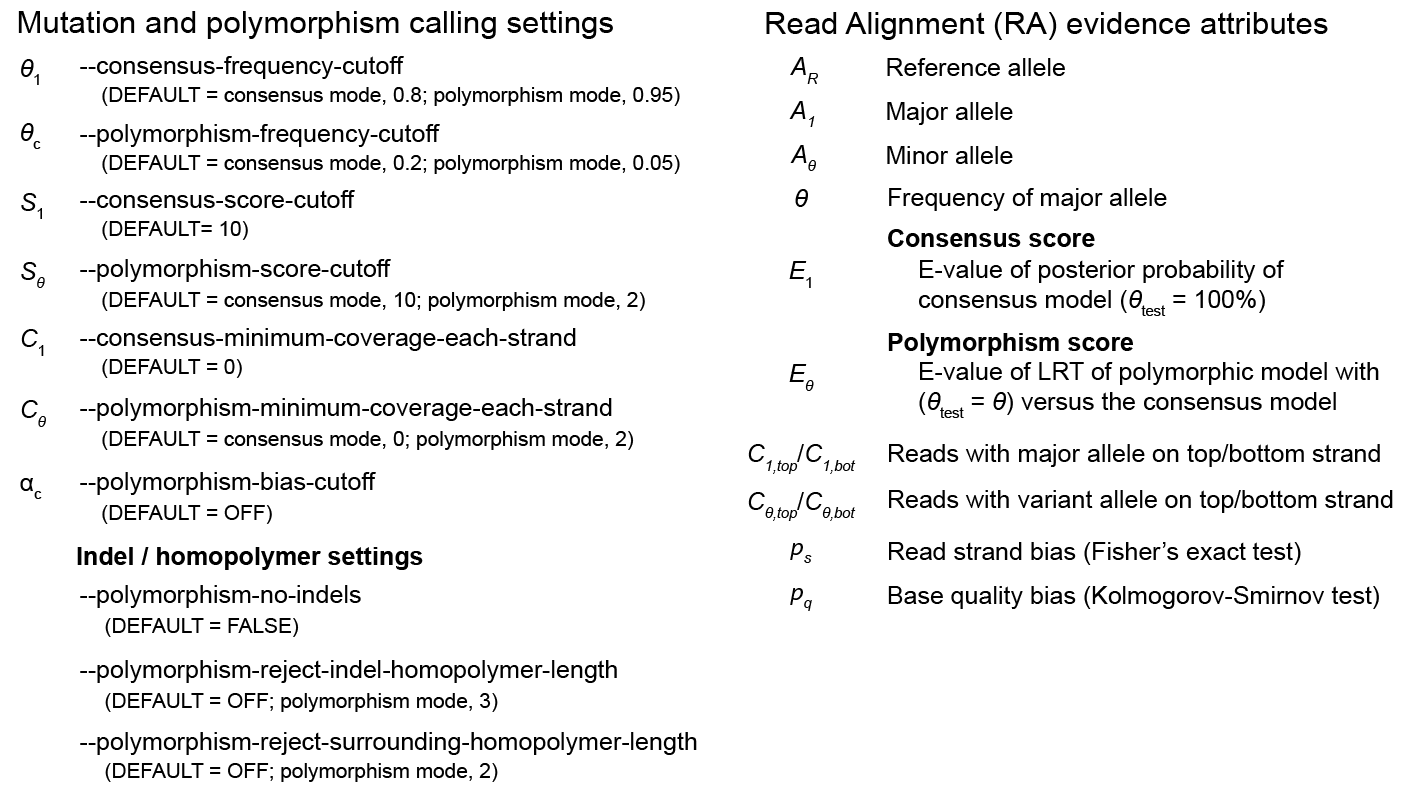
Methods Breseq 0 35 7 Documentation
YOU MAY LIKE :
